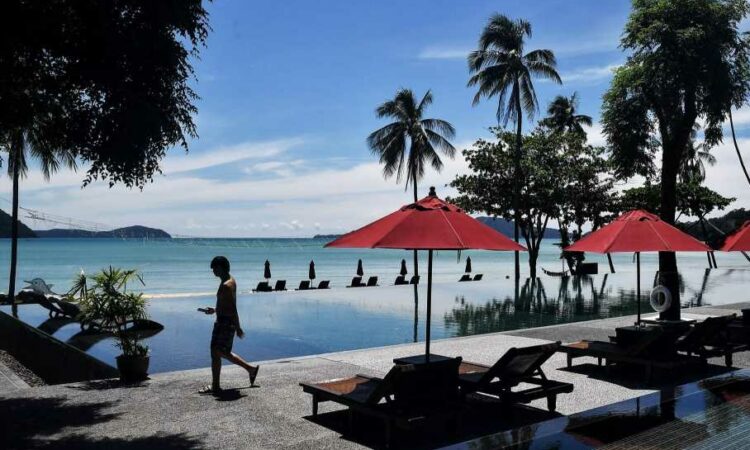- The resort island of Phuket, Thailand, says it will welcome vaccinated tourists back by October, per Bloomberg.
- Under the plan, travelers will be able to skip the country’s mandatory 14-day quarantine.
- The island plans to vaccinate 70% of its residents by September 1 to reach local herd immunity.
- Visit Insider’s homepage for more stories.
The resort island of Phuket in Thailand says it plans to welcome vaccinated tourists by October – and travelers would be able to bypass the country’s mandatory two-week quarantine, Randy Thanthong-Knight reported for Bloomberg.
Load Error
Thailand reopened to foreign travelers in October with a new special tourist visa program, but tourists are still required to undergo a mandatory 14-day quarantine upon arrival.
Phuket, one of Thailand’s biggest tourism destinations, plans to make it easier for tourists who’ve gotten their COVID-19 vaccines to vacation on the picturesque island, which is known for its beaches, nightlife, and luxury resorts. The island plans to buy enough vaccine doses to inoculate 70% of its roughly 400,000 residents by September 1 to reach herd immunity in the local population. The undertaking is to be funded by multiple business groups including the Phuket Chamber of Commerce and the Phuket Tourist Association, per the Bloomberg report.
“We can’t wait any longer. If we have to wait, we won’t survive,” Bhummikitti Ruktaengam, president of the tourist association, told Bloomberg. “If we miss this winter peak season, we’d have to wait another year.”
Still pending government approval
The plan, called “Phuket First October,” still needs to be approved by the government. According to Bloomberg, Phuket is considering buying doses of China’s Sinovac Biotech vaccine, which researchers have found to be 50.4% effective.
Phuket’s tourist association did not immediately respond to Insider’s request for more details on the plan, including which vaccines it plans to administer to locals and which it will accept from tourists.
Thailand has said it will start administering its COVID-19 vaccinations on February 14, starting with the AstraZeneca vaccine – which has shown to be 82% effective – but health officials don’t expect country-wide herd immunity to be reached until 2022.
Like other tourism-dependent countries, Thailand’s economy has suffered during the coronavirus pandemic.
In 2019, almost 40 million foreign tourists visited Thailand, bringing in more than $64 billion in revenue – about 11% of the country’s GDP, according to Reuters. In 2020, the year international travel all but evaporated, Thailand’s tourism revenue was a fraction of that: less than $28 billion, which came mainly from domestic travel, according to the Pattaya Mail. Thailand’s borders were closed to tourists from March to October.
In October, Thailand reopened to foreign travelers in a limited capacity by launching a new tourist visa program that allows visitors to stay in the country for up to nine months. It said it would issue 1,200 such visas – but it had trouble filling even those few spots, as Thanthong-Knight reported last month.
Travelers were likely deterred by the required 14-day quarantine – which can cost between $1,240 and nearly $10,000 and is paid for by the traveler – even if it could be served in a beachside luxury resort.
Jessada Srivichian, the financial manager of Hotel Clover in Phuket, told Bloomberg last month that she’d never seen Phuket so quiet in 20 years. “We need international visitors,” she said. “We’re not thinking of making a profit but instead focusing on minimizing losses, because as long as there’s a quarantine requirement, people won’t come.”
If Phuket has its way, tourists will be free to roam its sandy shores on quarantine-free, COVID-free holidays in a matter of months.
Thailand’s national tourism authority did not immediately respond to Insider’s request for comment for this story.
Source: Read Full Article


